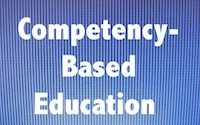
Online Microteaching: A Multifaceted Approach to Teacher Professional Development
In this paper, the author proposes that microteaching may be practiced through online media. The core concept of traditional microteaching is that it is a manipulative technique used to facilitate self-reflective and critical thinking processes while teaching. Preliminary research was conducted with elementary teachers who were participating in University Terbuka, Indonesia online microteaching program. A […]
















